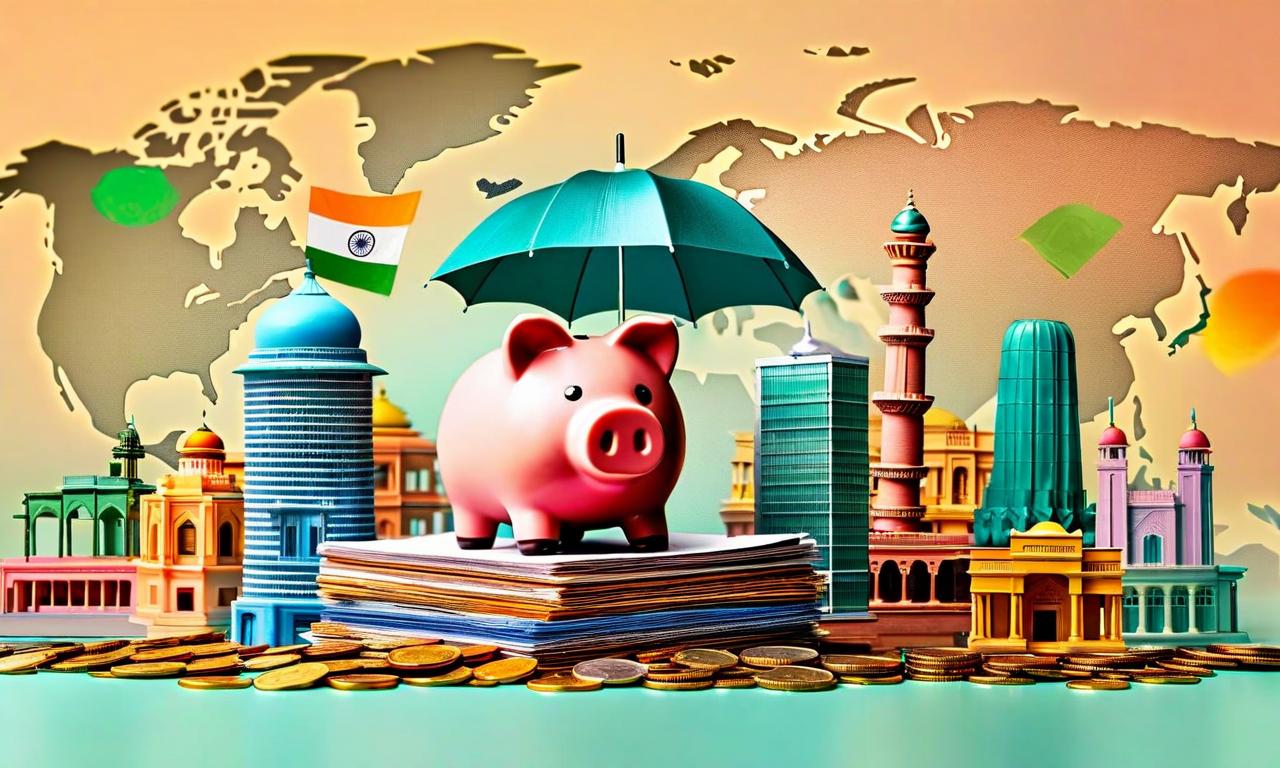Insurance Giants Rival Banks with ₹1.4 Lakh Crore Policy-Backed Loan Market
Insurance companies have matched banks in the secured personal loan market, accumulating ₹1.4 lakh crore in loans against policies. Most insurers reported over 25% growth in policy loans, with LIC holding the largest share at ₹1.27 lakh crore. These loans offer attractive interest rates of 8.50% to 10.50%, allowing policyholders to borrow up to 85% of their policy's surrender value without surrendering long-term plans. Eligible policies include endowment plans, ULIPs, and whole-life plans. This trend contrasts with the modest 1% growth in loans against mutual funds, indicating a shift in the personal loan market dynamics.

*this image is generated using AI for illustrative purposes only.
In a significant shift in the financial landscape, insurance companies have emerged as formidable competitors to banks in the secured personal loan market. The insurance sector has amassed a substantial ₹1.4 lakh crore in loans against policies, matching the total loans provided by commercial banks against fixed deposits.
Insurance Sector's Loan Growth
An analysis of 12 insurance companies reveals a robust growth trend in policy loans:
- All insurers, except Life Insurance Corporation of India (LIC), reported over 25% growth in policy loans.
- LIC maintains the largest share of policy loans at ₹1.27 lakh crore.
Attractive Features of Policy Loans
Insurance companies are offering compelling terms for policy-backed loans:
- Interest rates range between 8.50% to 10.50%.
- Policyholders can borrow 80-85% of their policy's surrender value.
- Loans are available without the need to surrender long-term plans.
Eligible Policies and Loan Process
Policy loans are accessible for various insurance products:
- Endowment plans
- Unit-Linked Insurance Plans (ULIPs)
- Whole-life plans
To be eligible, premiums must be paid for 3-5 years, depending on the policy type.
Comparison with Other Secured Loans
The growth in policy-backed loans stands in stark contrast to other secured loan options:
- Loans against mutual funds grew by only 1% to ₹14,853 crore across 17 listed banks.
Both policy loans and loans against mutual funds offer customers the advantage of pledging existing investments without liquidation. These secured loans also benefit from faster processing times compared to traditional loan products.
Market Implications
This trend indicates a shifting dynamic in the personal loan market:
- Insurance companies are leveraging their large policyholder base to expand into lending.
- The growth in policy loans suggests increasing consumer awareness and utilization of insurance policies as financial tools.
- Banks may face increased competition in the secured loan segment, potentially leading to more competitive rates and terms for consumers.
As the financial services landscape continues to evolve, the rise of insurance companies in the loan market represents a significant development for both consumers and traditional banking institutions. This trend may prompt further innovations and competitive offerings in the personal loan sector.































